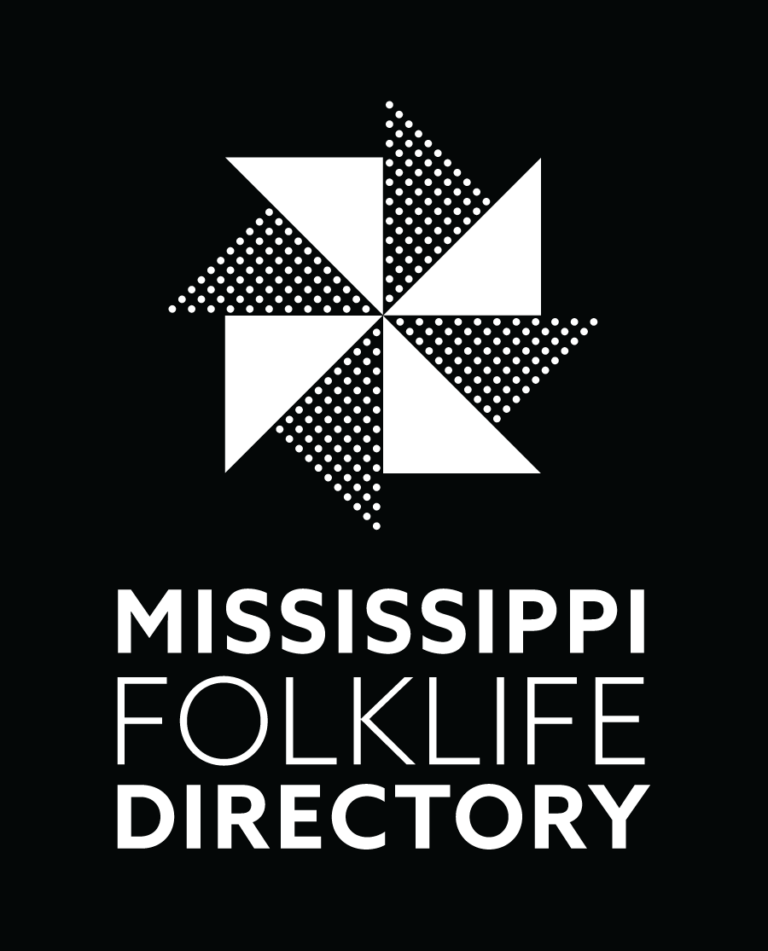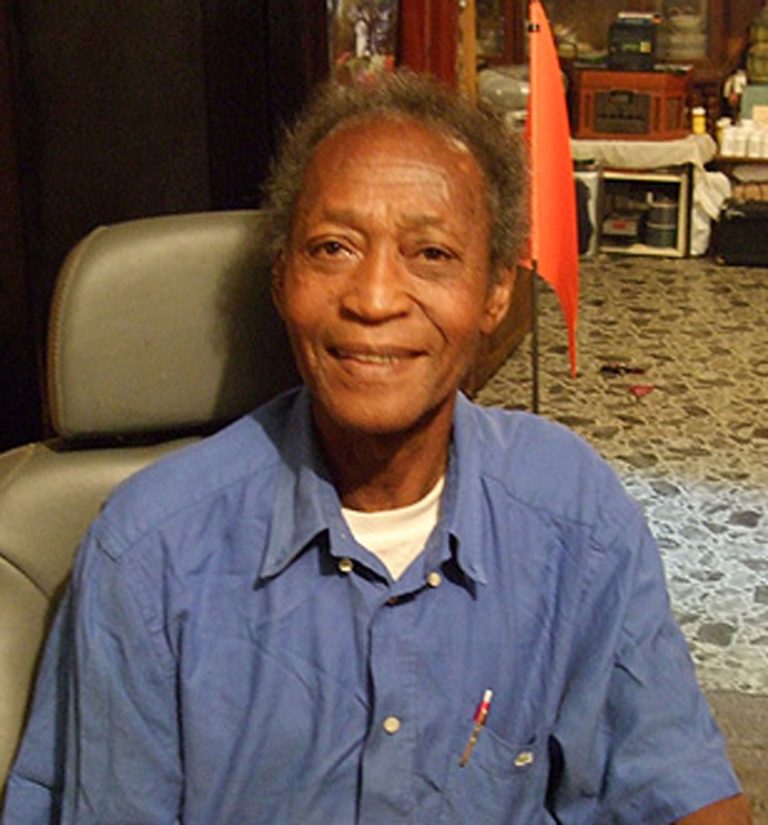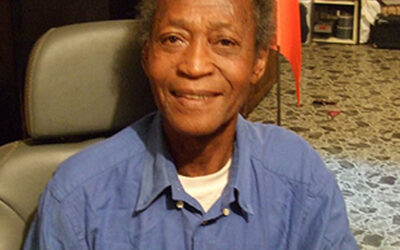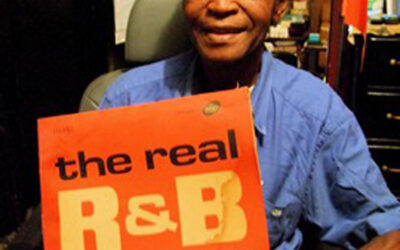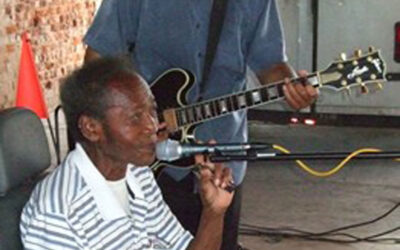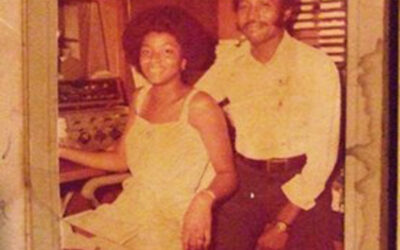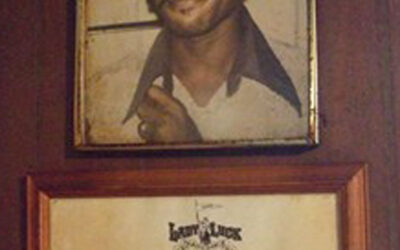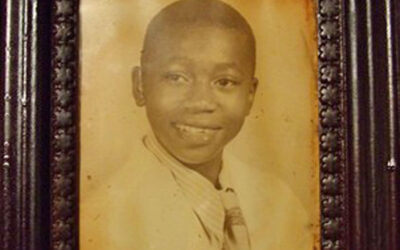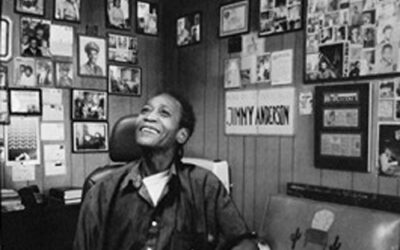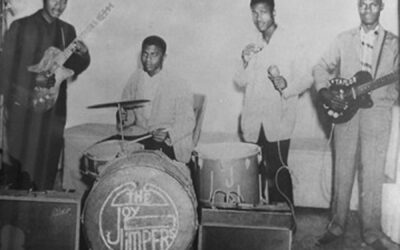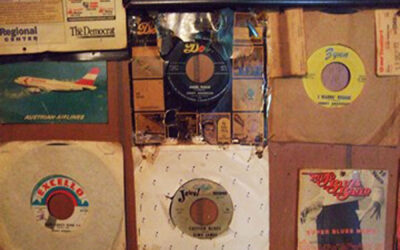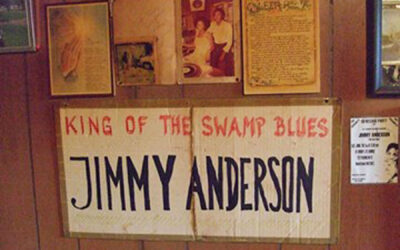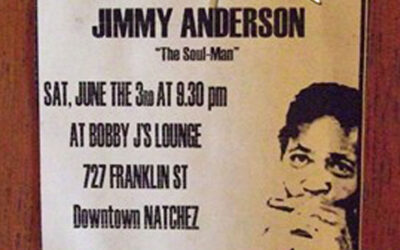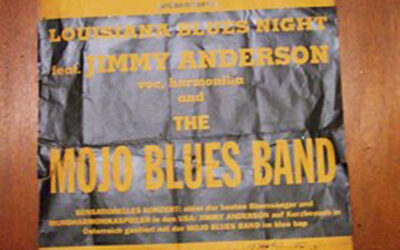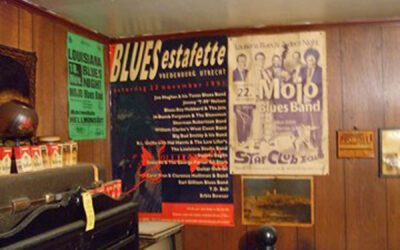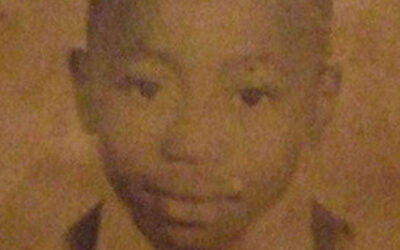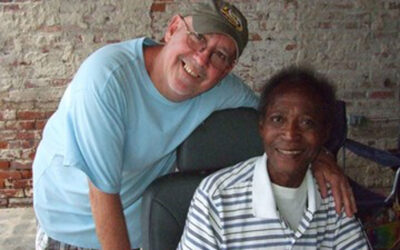Harmonica player and vocalist Jimmy Anderson was born on a farm near Natchez on November 21, 1934. His parents were sharecroppers who also worked in Natchez, and Anderson’s first exposure to the blues was via hearing the harmonica of Alexander “Papa George” Lightfoot, a deejay and recording artist who often played while he sold snowballs from a wagon. His main influence, though, were the recordings that he heard over the radio of Jimmy Reed, with whom Anderson’s vocals and harmonica style are often compared. At 16 Anderson moved to Baton Rouge for employment, and in 1959 he formed his first band, Jimmy Anderson & the Joy Jumpers. The group played mostly in the greater Baton Rouge area, and consciously performed in a style similar to that of local “swamp blues” artists including Slim Harpo and Silas Hogan, whose nephew Oscar Hogan, Jr. was in Anderson’s band.
In 1962 Anderson and the Joy Jumpers recorded their first single, which was issued on the local Zynn label and then reissued on the national Dot label. Later that year the band recorded two singles for the Nashville-based Excello label, which recorded many Baton Rouge area artists at the Crowley, LA studio of J.D. Miller (who owned Zynn), and in1964 the group recorded another single for Excello. The records sold modestly in the U.S., and unbeknownst to Anderson he developed fans in the UK, where his Excello single “Naggin’” appeared on the Stateside (UK) compilation LP Authentic R&B. “Naggin’” and three other Anderson recordings were also reissued on two Stateside singles. Other Anderson songs later appeared on a variety of compilation LPs of previously unissued recordings from Miller’s studios on the British Flyright label. Notably, most of Anderson’s recordings were his own compositions.
In the mid-‘60s Anderson began actively playing guitar after one of his guitarists “got into trouble,” and was soon playing lead in addition to harmonica and singing. He decided to quit recording music, as he felt that he was cheated out of royalties and had stopped performing by 1969 when he moved back to Natchez, where he found work in the police department. He returned to music when he and friend began working as deejays in clubs including the Cross Keys, where he earned the nickname “Soul Man Lee.” In 1973 he began deejaying on Natchez R&B station WNAT under that moniker and became a local celebrity—today many people in Natchez only know him as “Soul Man Lee.” He also worked at radio stations WZZB in Centreville and KVLA in Vidalia and hosted gospel and country shows as Lee Anderson.
In the early ‘90s Louisiana swamp-pop performer Johnnie Allen tracked down Anderson for a revue he was putting together, and in 1991 the group traveled to the Blues Estafette festival in Utrecht, Holland. After not performing for over twenty years, Anderson had to relearn his songs and instruments, but he was well received. Anderson returned to Europe for many more performances, and a number of songs of him performing together with Austria’s Mojo Blues Band appeared on their 1999 CD Blues Parade 2000. In 1999 Anderson suffered a stroke in which he largely lost the use of his right arm, but today he continues to play the harmonica and sing and performs occasionally at the Natchez area.
